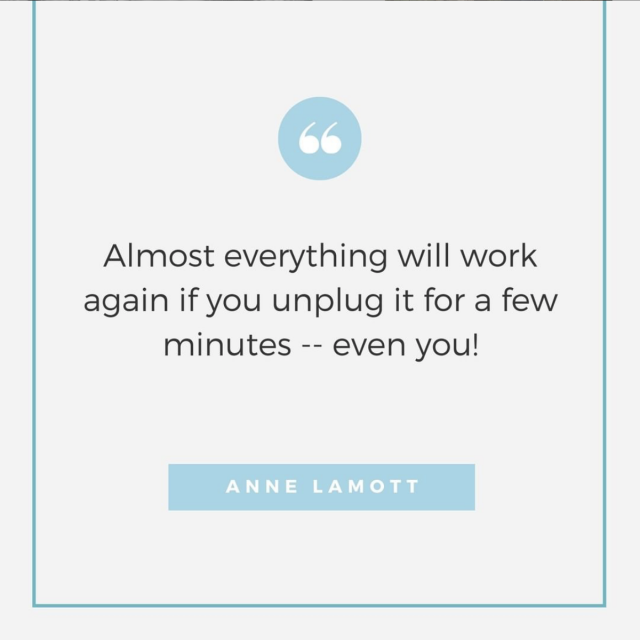Someone recently recommended “The Upside of Stress” by Kelly McGonigal. So I dutifully checked it out and watched Kelly’s Ted Talk.
This was especially interesting to me because I had recently watched an episode of “The Expanse” where one character talked about trying to help a struggling butterfly out of a chrysalis by cutting the chrysalis. And it turned out the butterfly couldn’t fly because it was the struggle of working its way out of the chrysalis that pushed fluid out of the butterfly’s body and strengthened its wings. Yes, struggle often leads to growth. That is arguably an upside of stress.
And yet, too much struggle and stress undeniably has negative consequences. Ask anyone who has ever put seedlings out in the garden to harden off too early. Even if a seedling manages to survive, it will be a scrawny, scraggly producer, not nearly as prolific as a plant that is put into the garden at the proper time.
Perhaps the target audience of “The Upside of Stress” is those who view ANY struggle or hardship as undesirable. Witness all of the snowplow parents — myself included — who try so hard to clear obstacles out of their children’s way lest they not succeed or be too frustrated. If the child has autism or special needs of any kind, perhaps even more so. For this audience, Kelly’s message may resonate. As painful as it may be, it’s probably important to allow some stress and struggle into your child’s life, so that they can learn and develop their own strength and competence.
“Upside of Stress” – Main Points
Reframe Stress. Change your mindset about stress and the problems associated with stress will disappear.
This is can be effective for some types of problems. For example, public speaking. I listened to Josh Pais talk about the difference between anxiety and excitement, how they both feel pretty much the same in one’s body — butterflies in stomach, heart racing, head pounding. And how one person might frame that as “I have stage fright, I can’t go on stage”, and another person might frame that as, “I’m excited, I can’t wait to go on stage.”
Kelly advocates consciously changing the way you speak to yourself about those physical sensations — “This is my body, helping me to rise to this challenge”. I love that, and I think reframing is an excellent tool for handling some types of stress.
Stress Makes You Stronger. Stress also increases oxytocin, which is a hormone that drives us to seek connection.
This is along the lines of the butterfly struggling to get out of the crysalis. Some stress may make you stronger, but I still believe (and decades of evidence supports this) there is a tipping point at which too much stress becomes damaging and unhealthy. Our bodies did not evolve to be in a constant state of fight, flight, or freeze, and reframing the stress that causes a limbic system response is not going to eliminate the negative impact of that on our bodies.
Furthermore, I think it’s important to acknowledge that every individual has a unique level of stress tolerance, based on their biology and their life experiences. Challenge yourself, push yourself out of your comfort zone absolutely, especially in areas that align with your values. But it is absolutely okay to resist and reduce stress in your life in other areas.

A Meaningful Life is a Stressful Life. When you are truly vested in something, you feel more stress about getting things right.
This is certainly true sometimes. Take parenting a young child with severe food allergies and sending them on a playdate. That is is definitely stressful. And that anxiety motivated me to over prepare, to work really hard to make sure people understood her allergies, that she always had her own food with her, that she was dressed in a way to minimize skin contact with allergens, and so on.
Is it true all of the time though? And does this automatically translate into an upside of stress? Can’t you have a meaningful life that has very low levels of stress? It seems like that could be possible.
The reverse is not necessarily true either. Your life can be extremely stressful for a variety of reasons (addiction, abuse, illness) and that does not mean you are living a life you find meaningful. In fact, sometimes stress is increased when you are living a life you do NOT find meaningful and are working up the courage to shift gears.
Manage Stress by Helping Others. Helping others, volunteering, working for causes you believe in all increase your satisfaction and reduce the negative impact of stress. A study showed that for every major stress experience, people experienced a 30% increased risk of dying, unless they spent time caring for others — then they showed a zero increased risk of dying.
Studies do show that helping others can help you manage your own stress. But I am extremely skeptical of the study mentioned in the book, that helping others literally wipes out your risk of dying from stress. I hope other researchers are trying to replicate it and the results to validate it further.
Helping others is wonderful, but it’s hardly the only beneficial way to manage stress. Yoga, breath work, meditation, exercise, nutrition, and connection are just a handful of ways that people manage their stress effectively.
BOTTOM LINE
Kelly says that stress in life is inevitable, so your focus should not be on eliminating stress but rather changing your mindset about stress. If you succeed, you can change your body’s response to stress.
This is a useful point, especially as it relates to gravity problems, or problems you have no control over. However I definitely wouldn’t throw out all of your other stress management / stress reduction techniques.
Much of Kelly McGonigal’s philosophy as reflected in “The Upside of Stress” appears to be a little simplistic and very reflective of “boot-strap” philosophy, that the quality of one’s life is entirely dependent on one’s mental outlook.
This is not entirely untrue, of course, but there are many reasons that people can’t just snap their fingers and change their philosophies and beliefs. We are all doing our best to manage the challenges life throws at us, and it’s so important to have compassion for those who may have stressors that can’t be managed with a simple mindset change.
Did you enjoy this post? You might enjoy my newsletter!











